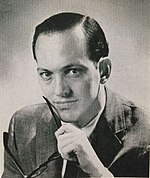Edmund Naughton, Date of Birth, Place of Birth, Date of Death
TweetEdmund Naughton
 Date of Birth: 01-Jan-0001
Date of Birth: 01-Jan-0001
 Place of Birth: New York City, New York, United States
Place of Birth: New York City, New York, United States
Date of Death: 09-Sep-2013
Profession: novelist, detective writer
Nationality: United States
Zodiac Sign: Capricorn 
About Edmund Naughton
- Edmund Naughton (1926–2013) was an American writer and journalist whose first novel, McCabe (1959), was the basis for the 1971 film McCabe & Mrs.
- Miller.
- The film, directed by Robert Altman, is now considered a masterpiece.
- After 1958, Naughton lived in France and England.
- Between 1959 and 1984, Naughton published six novels in the genres of westerns and of crime fiction.
- The first two were published in French translation as well as English; the last two were published only in translation. Naughton was born and raised in New York City and educated in Catholic schools.
- He received a bachelor's degree from Boston College in 1948, and an M.F.A.
- degree from Fordham University in 1953.
- He then became a police reporter for The Courier-Journal in Louisville, Kentucky.
- As described in a short biographical notice, "he stayed for 5 years on the police beat, which he worked down to an average of an hour & a half's work per day.
- The rest of the time he spent playing cards and drinking beer with policemen.
- Once he went on an actual manhunt with them.
- He wrote McCabe in 1957-1958, largely out of his experience on the police beat, transposing his characters to the West." In 1958 Naughton moved to Paris, France, where he worked for the International Herald Tribune, The New York Times, and as an English teacher.McCabe, which had been well-reviewed by Nelson C.
- Nye in The New York Times, was translated into French as La Belle Main in 1960, and into German as Keine Chance für McCabe in 1966.
- He published his second novel, The Pardner, in 1971, which was also promptly translated into French (as Oh! collègue).
- In association with the 1971 film based on it, McCabe was published in new editions and a new translation into Italian (I Compari).
- The novel was last reprinted as a mass market paperback in 1992.Naughton published four more novels.
- A Case in Madrid was published in 1973 and The Maximum Game in 1975.
- Two more novels appeared only in French translation: Les Cow-boys dehors! (1982 - Wild Horses) and Grand Noir et le petit Blanc (1984 - White Man, Black Man).
- French critic Claude Mesplède included Naughton in the Dictionnaire des littératures policières (lit.
- Dictionary of Crime Literature).
- Mesplède writes that Naughton lost his job as a journalist in Louisville following public revelations that he was homosexual, and that this episode motivated his emigration from the United States to Europe.
Read more at Wikipedia
See Also
- Famous People's Birthdays on 01 January, United States
- Famous People's Birthdays in January, United States
- Famous novelist's Birthdays on 01 January, United States
- Famous novelist's Birthdays in January, United States
- Famous detective writer's Birthdays on 01 January, United States
- Famous detective writer's Birthdays in January, United States

